During uncertainty with SNAP funding because of federal government shutdown, Kauaʻi steps up to fill in the gap
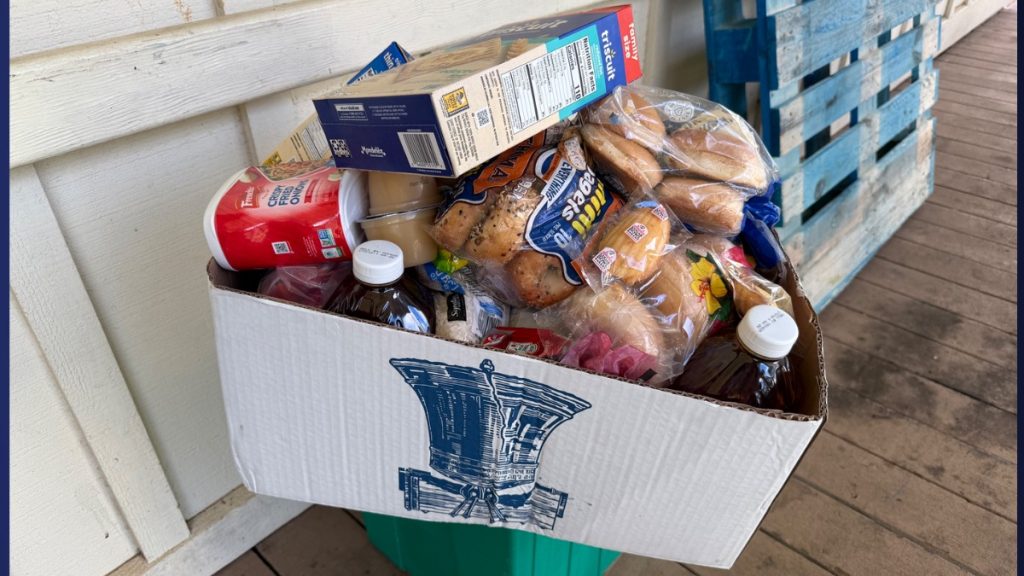
Update: Soon after this story was published, two federal judges ruled that the Trump administration must continue to fund the SNAP food aid program using contingency funds during the government shutdown, according to the Associated Press.
The judges ruled Friday that the food aid program will be funded using emergency reserve funds during the government shutdown, according to the Associated Press.
The U.S. Department of Agriculture planned to freeze SNAP payments starting Nov. 1 because it said it could no longer continue funding them due to the shutdown, according to the Associated Press.
“The administration said it wasn’t allowed to use a contingency fund of about $5 billion for the program, which reversed a USDA plan from before the shutdown that said money would be tapped to keep SNAP running,” the article reads.
Democratic leaders argued this, saying: “not only could that money be used, but that it must be.”
These officials also noted that a separate fund with around $23 billion is available for the cause.
Click here to read the full AP story.
With the federal government shutdown reaching the one-month mark, food banks and pantries across Kauaʻi are stepping up to fill the gap for people who rely on food assistance benefits known as SNAP.
The suspension of Supplemental Nutrition Assistance Program benefits is expected to begin Saturday, leaving thousands without crucial food assistance on the Garden Isle.
In anticipation of a surge in need, the Kauaʻi Independent Foodbank and Hawaiʻi Foodbank Kauaʻi are both operating at full capacity.
“The calls have already started coming in,” said Wes Perreira, director of the Hawai‘i Foodbank Kaua‘i. “People are worried — kupuna on fixed incomes, working families, and folks who’ve never had to ask for food before.”
He said the focus is on keeping the warehouse stocked with nutritious, everyday staples, including rice, canned goods, proteins, pasta, and fresh produce.
“We’ve already increased our procurement of food to strengthen inventory levels and prepare for higher demand,” Perreira said. “This comes on top of our elevated distribution levels, which continue to match — and may even exceed — the volume we were moving during the peak of COVID.”
The organization has built a strong network of more than 60 partner agencies, which includes The Salvation Army Corps, Child & Family Service, and a mix of large and small faith-based and community organizations.
This enables the organization to reach households from Hā‘ena to Kekaha.
Both organizations reported to Kauaʻi Now that since the federal shutdown on Oct. 1, they have witnessed an uptick.
Perreira added that he expects “numbers to rise sharply through November and December as families begin to feel the impact.”
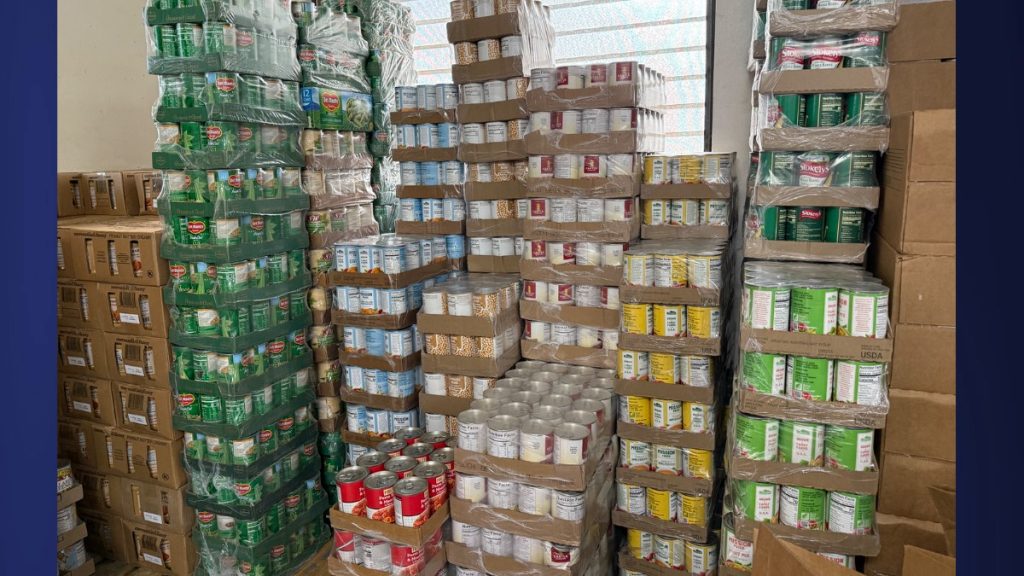
On Wednesday, the Kaua‘i Independent Foodbank assisted federal workers who are working without paychecks with 191 food boxes filled with fresh beef and chicken, potatoes, carrots, apples, pears, rice and shelf-stable items.
Jennifer Harper, development coordinator with the Kauaʻi Independent Foodbank, said: “In the past week, we have fielded numerous calls and emails from our most vulnerable residents facing cessation of SNAP benefits and facing food insecurity.”
She said the food bank has also seen an increase in the number of people coming for support.
“We are seeing new faces at the food bank every day; people who have never needed to access food support in the past are now coming for help,” she said.
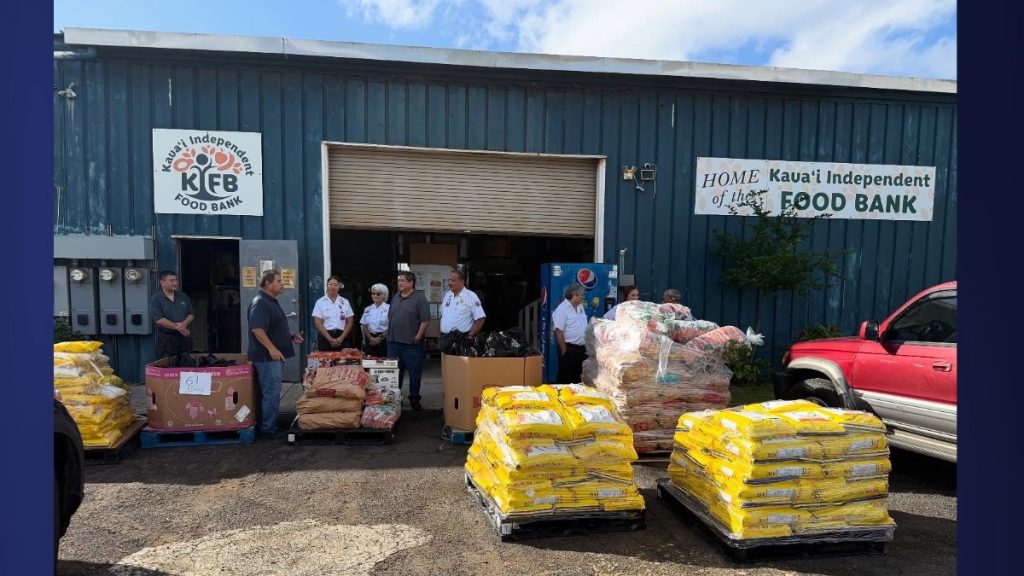
“Itʻs terrible all of this, especially for single moms,” said Levi Yunwiyah, a Hanalei resident and SNAP recipient, who was picking up food at St. Williams Church Food Pantry in Hanalei.
Despite the uncertainty, Yunwiyah said he was looking forward to taking his daughter out for Halloween.
“I try to stay positive, thatʻs all I can do,” Yunwiya said. “And hopefully everything works out. I have faith, and thatʻs all you can do. Iʻll take my daughter trick-or-treating tomorrow, and that is that.”
Food pantry regular and Wainiha resident Rachel Pa described the current political climate as “a shame” while she carried two gallons of milk to her car.
“No one will go hungry in our community, I know that,” she said. “But I do know a lot of communities are not as tight-knit, and my heart goes out to them and the kupuna who fully rely on food stamps. Itʻs heartbreaking, you know. You never want to see your family or your neighbor in a bad position.”
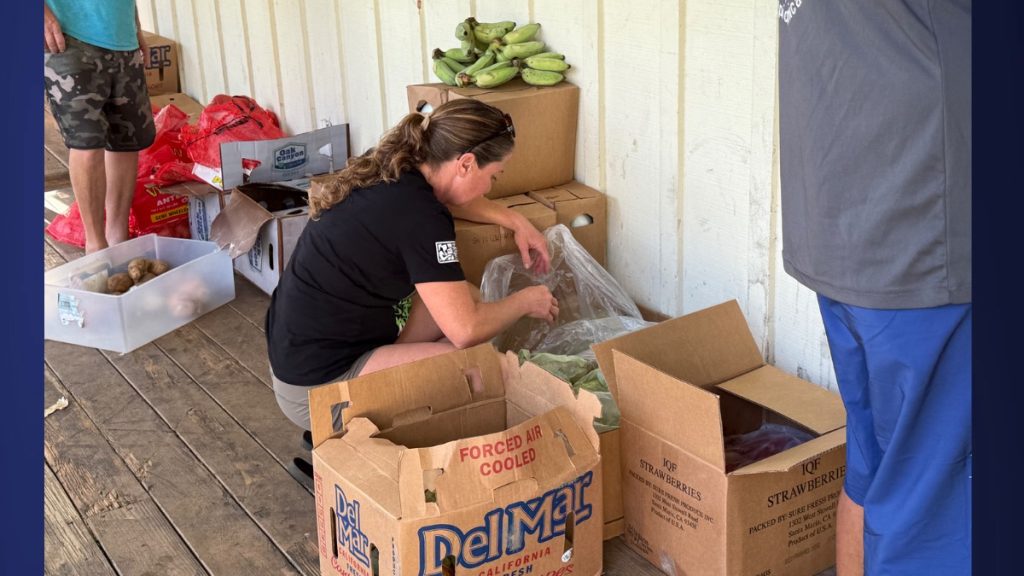
Perreira similarly added that before the official benefit pause, “we started seeing more families reach out for food assistance. Our partner agencies have reported more first-time clients and larger household sizes picking up food.”
The organizations encourage anyone in need to reach out for assistance. They reassure the island community that they are working tirelessly to ensure no family goes hungry this holiday season.
Including family pets, with dog and cat food available at select food distribution sites.
“We have a drive-through holiday distribution planned for Nov. 19, at the Kauai Veterans Center,” said Harper. “This is open to all people in need of food support. We plan to distribute 500 food boxes at that time.”
The Kauaʻi Independent Foodbank will also hold a second drive-through food distribution at the Kauaʻi Veterans in mid-December. As the next few weeks unfold, the food bank plans to continue to distribute emergency food support to those in need on the island.
In addition, food will be distributed at their Nawiliwili warehouse. Kauaʻi Independent FoodBank also noted they theyʻve been able to respond to every request thus far, and “we intend to continue to do so,” Harper said.
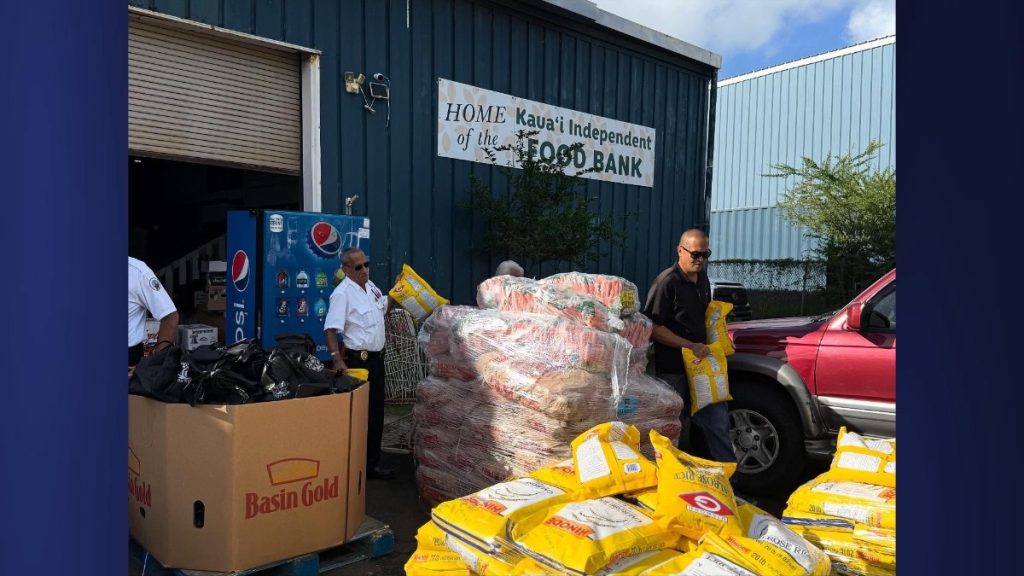
“We’ve been in regular communication with the Hawai‘i Department of Human Services and are tracking all updates on the SNAP pause and the Hawai‘i Relief Program,” said Perreira with Hawaiʻi Foodbank Kauaʻi.
On Thursday, Hawaiʻi Gov. Josh Green announced new coordinated state measures to protect Hawaiʻi families from the effects of the ongoing federal government shutdown and disruptions to SNAP benefits.
“No one should go hungry or lose stability because of gridlock in Washington,” Green said at a Thursday press conference. “When federal support is paused, Hawaiʻi stands up.”
The state will issue a $250 emergency relief payment per eligible individual in November, for a total cost of $42.2 million, helping households bridge the gap created by the pause in federal SNAP funding.
Perreira reiterates that anyone who steps into their facility or shows up to a drive-thru distribution event will be “greeted with aloha, compassion and respect.”
“There’s absolutely no shame in asking for help,” he said. “Life can change quickly — a shutdown, a lost job, or a medical bill can put any family in a difficult spot. Asking for help means you care about your family.”
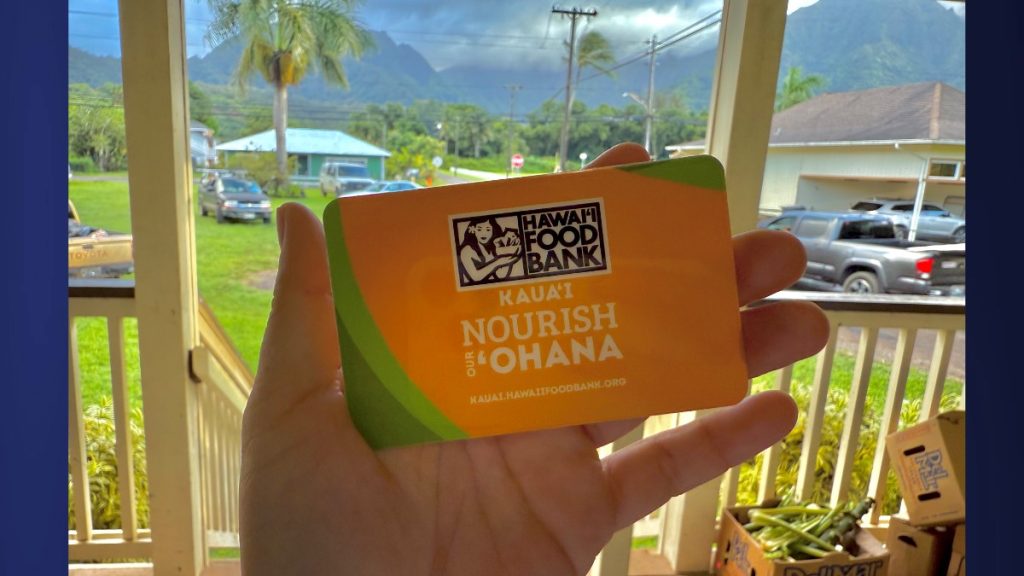
The Hawaiʻi Foodbank Kauaʻi is also inviting local schools, churches and businesses to host holiday food drives.
“Every bit helps,” Perreira said. “Because of our network, we can stretch every contribution and make it go much further in feeding Kaua‘i’s families.”
He added: “Our message to everyone is: you are not alone. We’re here to help, and we’ll continue to do everything we can to make sure there’s food available for every ‘ohana that needs it.”
Families and individuals seeking a community meal this Thanksgiving can visit the Salvation Army, which will host a grab-and-go meal at the Līhuʻe Corps from 11 a.m. to 1 p.m., or until supplies run out.
There also will be a community Thanksgiving lunch on Nov. 26 at the Hanapēpē Corps, from 10:30 a.m. to 1:30 p.m., or until supplies run out.
To donate, volunteer or for a full schedule of Hawaiʻi Foodbank Kauaʻi Food Assistance Handout, click here.
To donate or get involved with the Kauaʻi Independent FoodBank, click here.



